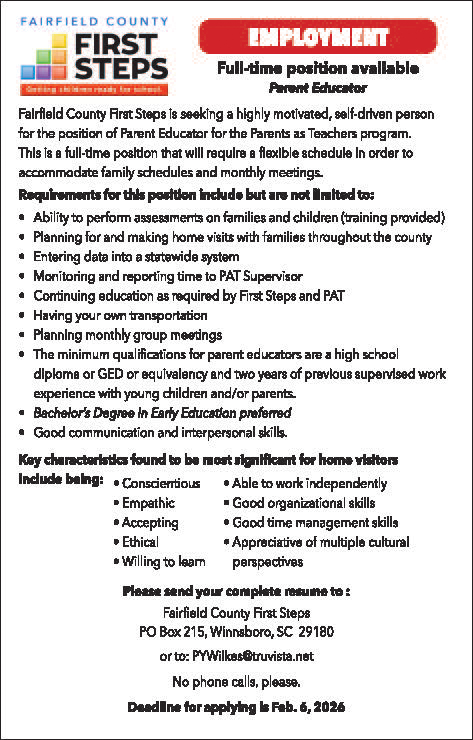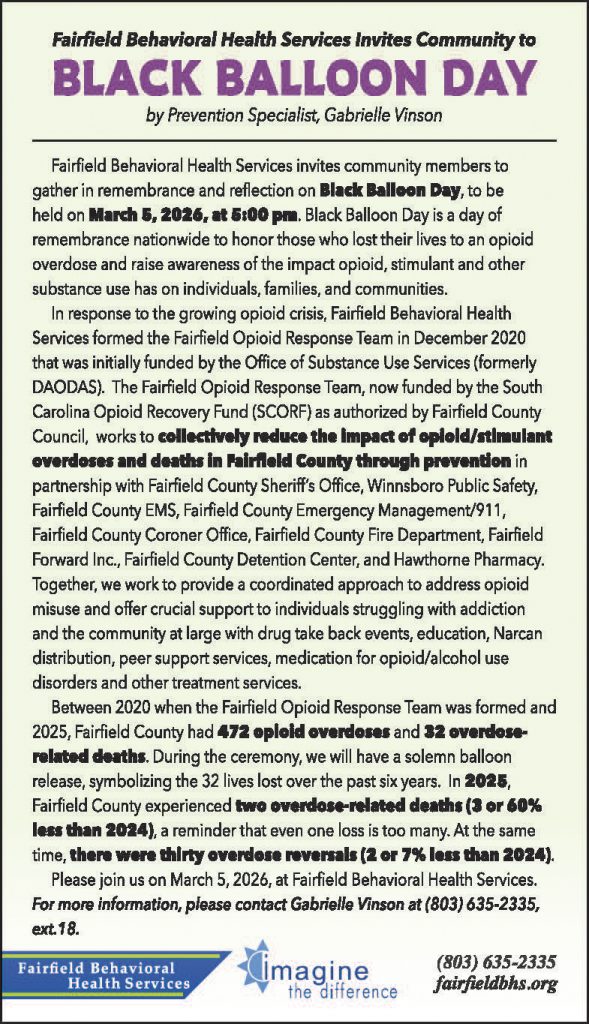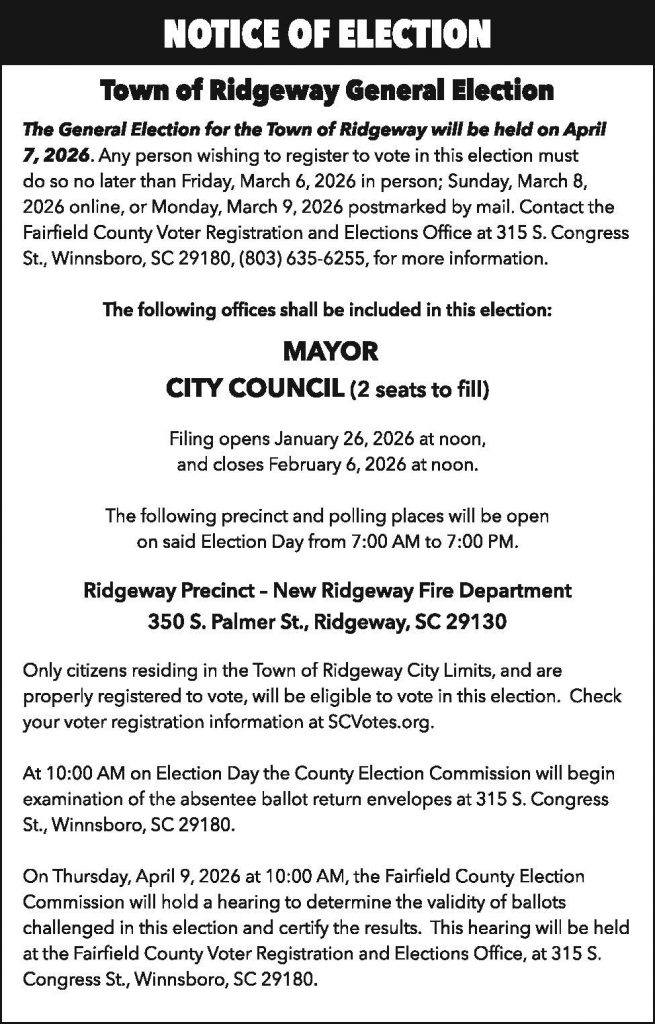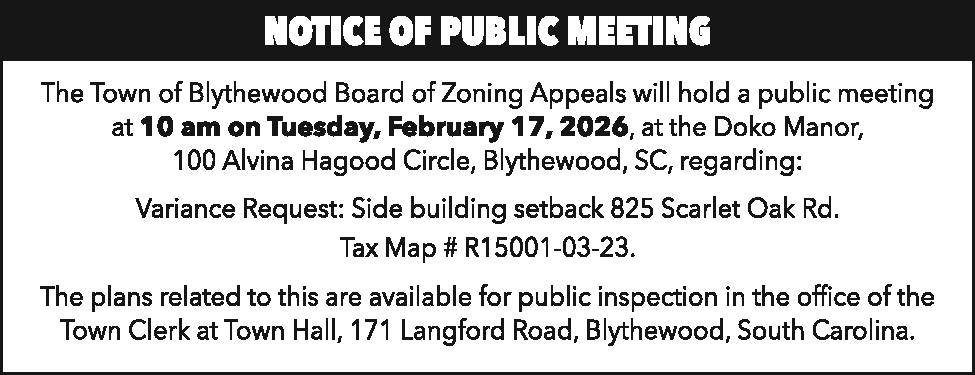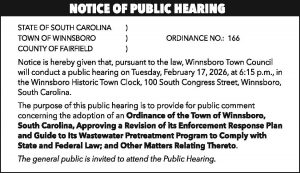WINNSBORO – During its June 25 meeting, the Fairfield County Ad Hoc committee reviewed the first portion (sections 4-1 through 4-14) of the current Fairfield County Animal Ordinance 737. The session reflected both collaboration and contention among the committee members as they worked through definitions, breeder regulations, nuisance provisions, and care standards.
“This is just the start of our consideration of verbiage and technical amendments,” said Committee Chair Katie Odum Titus
One notable change the committee made in the definitions section of Animal Ordinance 737 was to incorporate the same detailed exceptions that the AKC and UKC use for “At large” dogs participating in officially sanctioned AKC or UKC performance events. The committee noted that these registries are credible authorities when it comes to animal welfare. But the majority of the committee did not want to rely on these same sanctioning authorities’ when it comes to ‘who qualifies as a breeder and what oversight – for such things as health screening – is appropriate for breeders.’
Both the AKC and the UKC support the idea that breeding one dog is enough to qualify as a breeder:
- AKC: “Any individual who breeds a litter and applies for AKC registration is considered a breeder.” No minimum number of dogs is required.
- UKC: A breeder is “any person who owns a dam and registers her litter.” The UKC also emphasizes responsible breeding and health screening and impose no numerical threshold.
After extensive discussion, the majority of the committee rejected the AKC/UKC’s definition of a breeder as someone who breeds one (female) dog. With Committee Members Aimee Griffith and Ann Corrao pushing back, the other committee members opted to use a modified version of Richland County’s definition of a breeder (a person who breeds ‘one or more ’dogs’) to ‘three or more dogs.’
The committee also discussed the commercial sale or trade of the breeders’ dogs.
“Commercial purpose” is defined in the draft as “the buying, selling, training, or breeding of animals with the intent to derive income.” This definition, drafted by Titus, is accurate.
But the committee failed to apply this definition consistently. It doesn’t address whether someone breeding animals for income should be subject to licensing or oversight.
Committee member, Jerome Armstrong, said he does not agree that he is a breeder if he “barters with puppies,” for instance, at a “flea market.” Another committee member, Liz Bankhead, stated that, “having a litter of puppies every seven years is no different than having a garage sale.”
Dr. Gaddy agreed with both.
“From a reproductive biology standpoint, you’re not going to get more than one viable stud in a dog’s lifetime—you’re going to need more than one to have a feasible number,” Gaddy said.
Chairperson Titus, who says she is a breeder, indicated that only individuals with three or four breeding females should be classified as a breeder and collectively, they say they oppose breeders having to register.
According to animal advocate and volunteer Heather Feltner, who says she spends a good deal of time in the community and at the shelter, small scale backyard breeding operations in Fairfield county contribute to neglect, disease, and animal suffering—with no legal recourse under the current ordinance.
“These definitions reinforce a critical truth, that one breeding female is all it takes to sustain a for-profit breeding operation—and to flood the community with unwanted, unvetted puppies,”said Feltner. She said the more common and harmful scenario is that one breeding female is all it takes to produce a continuous supply of puppies for profit.
Feltner told The Voice she knows of examples of Fairfield County problems with backyard breeders because there is no oversight from the county.
“Just miles from the administration building, a backyard breeder keeps two dogs—one male, one female. The female is bred repeatedly,” Feltner said. “The puppies are then placed in crates with wire bottoms and flimsy pens in the driveway, sometimes sitting in standing water with no shade or cover. This “business” runs on private property, unregulated. Puppies are sold for as little as $25 each—sometimes more if the seller can convince a buyer.
“These puppies show signs of neglect: bloated bellies, probably from worms, white gums, skin conditions, bug bites, and clear signs of malnutrition. None have been vaccinated or seen by a vet.”
Feltner said this is not hypothetical or an exception.
“This is real and it’s the consequence of Fairfield’s animal ordinance failing to regulate backyard breeders who, basically, operate legally. They’re not violating current law, and that’s the problem,” Feltner said.
Under the county’s animal ordinance as currently written, enforcement officers say they often have no authority to intervene.
“As the draft moves forward, it is my hope that the committee will reconsider the breeder threshold and propose the AKC and UKC ‘standard of one-breeding-female’ as qualifying for commercial classification and required breeder specific registration or licensing,” Feltner told The Voice. “Without it, the cycle of neglect, overpopulation, and suffering will continue unchecked.”
The committee made progress on some key issues. They made changes to definitions of “at large,” “nuisance,” and “pet shop,” and they agreed on tighter language for confining animals in heat.
They also supported alignment with state law on a definition of dangerous animals.
The committee also reaffirmed that all dogs over six months must be microchipped and registered one time, with proof of rabies vaccination—required by state law at four months—provided at the time of registration.
“We can’t mitigate everything with perfect language,” Committee Member Aimee Griffith said. “Sometimes it’s about the spirit of the law.”
Titus reminded members that although several sections were provisionally “closed,” all decisions remain open to change as the full ordinance is completed and public feedback is considered.
The remaining sections of the draft are expected to be reviewed and discussed at the next meeting which was held Wednesday, July 2 after The Voice went to press.





